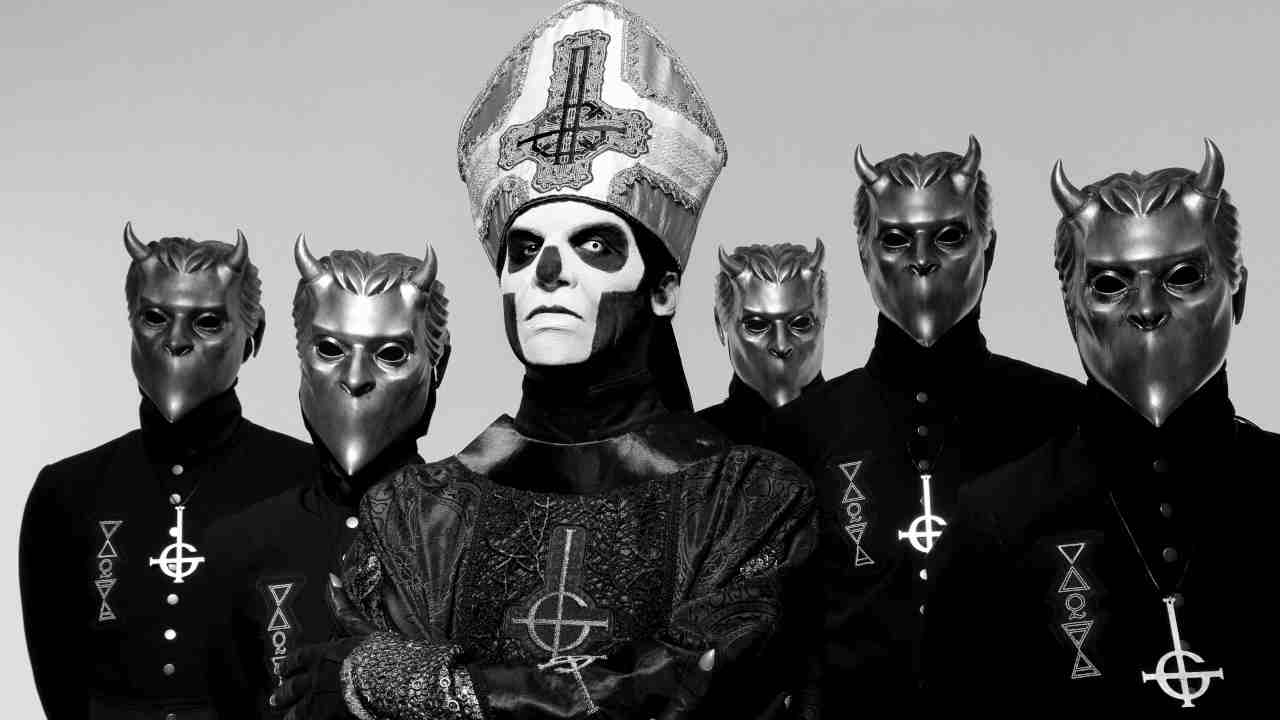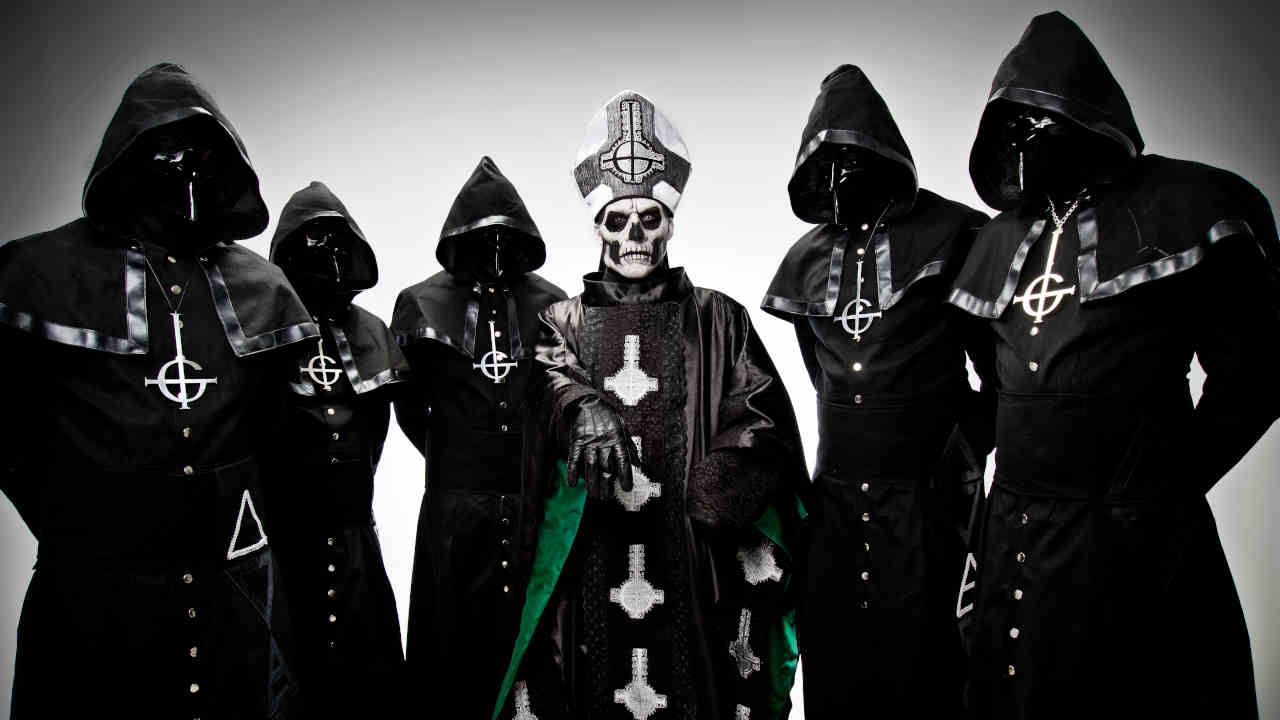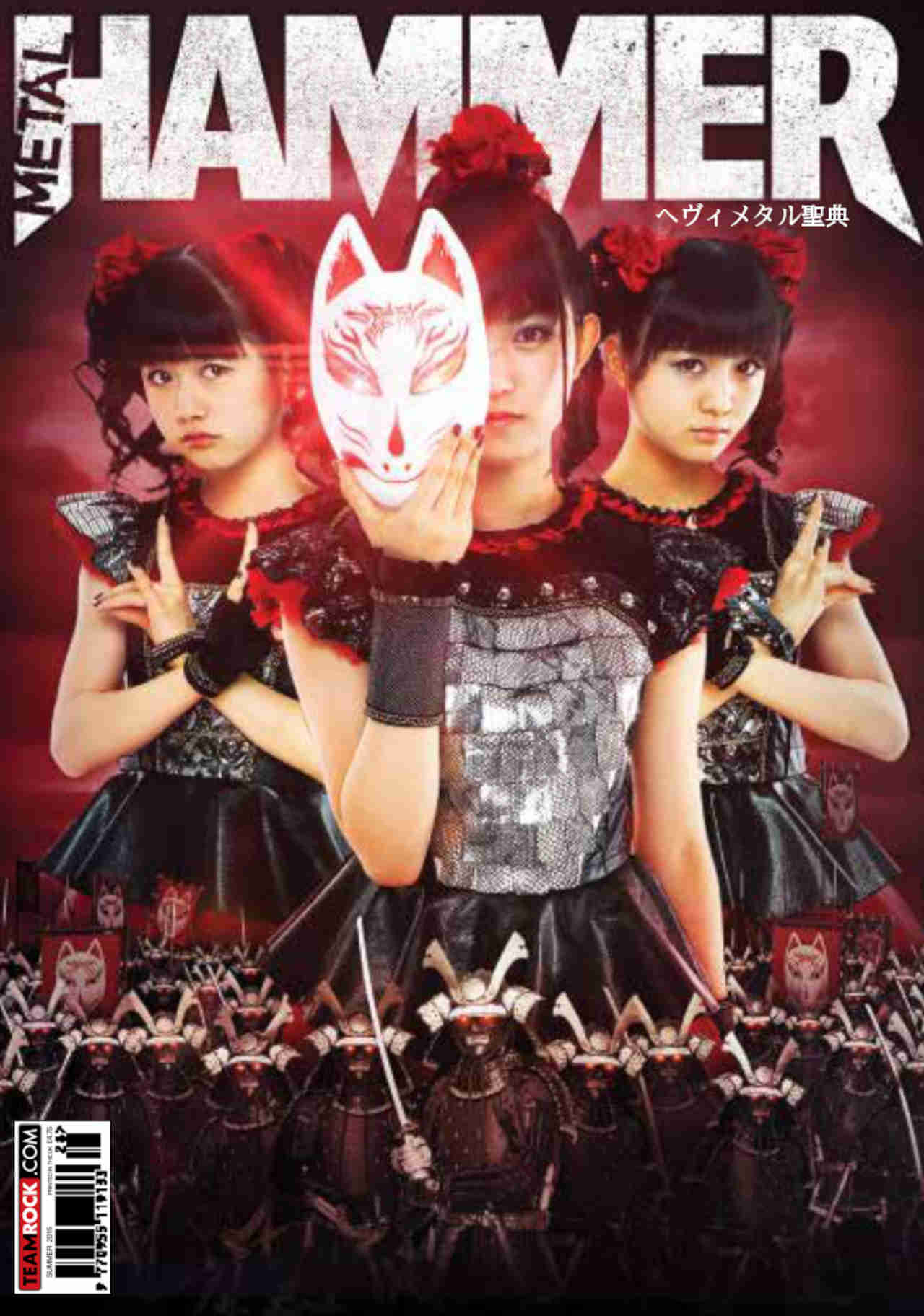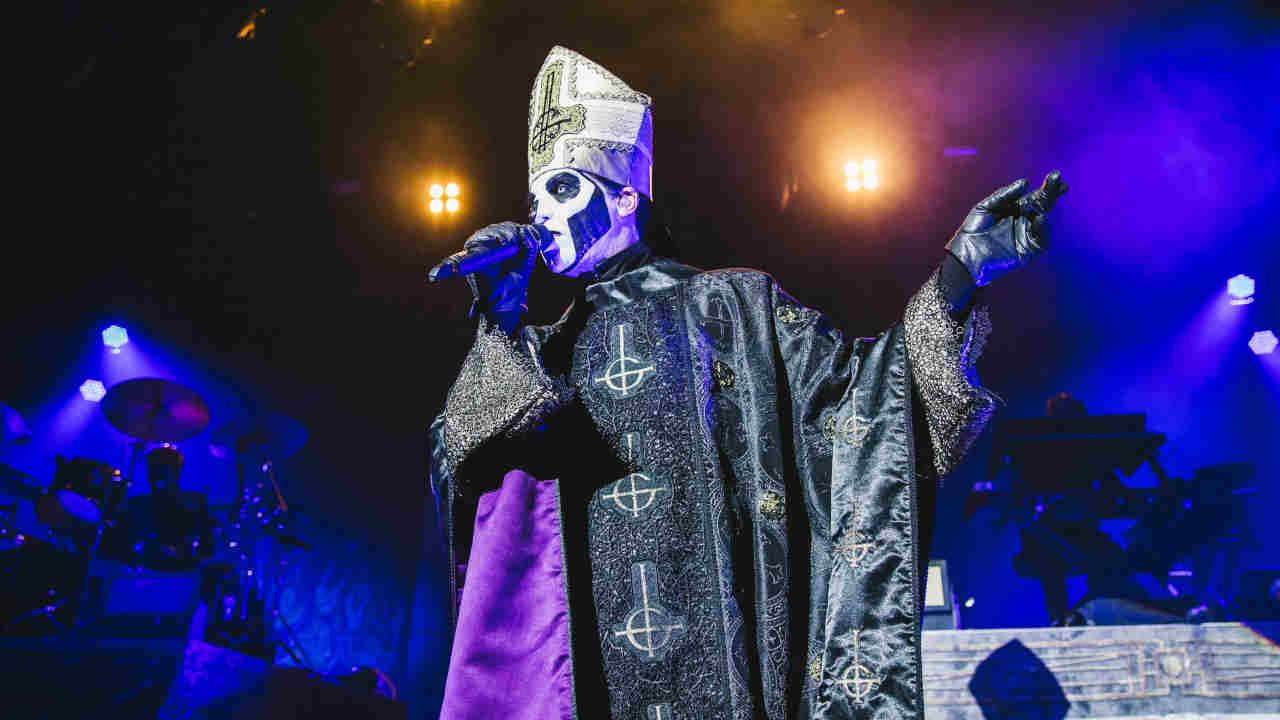
Ghost are one of the biggest breakout rock bands of the last 10 years, rising from unknown Swedish occult metallers into arena-headlining sensations. Their third album, 2015’s Meliora, was a huge stepping stone for them, something Metal Hammer found out when we caught up with enigmatic representative Nameless Ghoul, aka Ghost mastermind Tobias Forge, at the time.

Surely this can’t be right. Hammer is awaiting an audience with a Nameless Ghoul from the Swedish Devil-worshipping cult of Ghost, half-expecting to be blindfolded and ridden to the ruins of a deconsecrated church for a clandestine rendezvous with the masked and robed envoys of Satan. Yet we’re in the executive lounge of a Kensington hotel, and there’s an extremely polite, alarmingly youthful-looking short-haired man in a leather jacket being introduced as “the author of Ghost”.
Hammer experiences some cognitive dissonance, imagining that this is a hoax, that Ghost are slyly pretending to have human faces and interpersonal skills to divert attention from the true nature of their esoteric origins or seduce us into foul practices. The only visible clue to this young man’s role as Ghost mouthpiece is the symmetrically matching pair of skull-and-crossbones patches on his leather sleeves. Yet when he starts talking about Ghost’s third album, the majestic Meliora, it’s clear this guy knows what he’s talking about.
“The first album [2010’s Opus Eponymous] was about the impending doom of a more old-school Biblical sort, where death and destruction will come in the form of locusts and dark fog: it was the coming of the Antichrist,” he explains in soft, measured tones, choosing his words with care, maintaining near-constant eye contact. “The second album [2013’s Infestissumam] was about the presence of the Devil, taking place aesthetically in a 1700s milieu with a more Baroque theme. Whereas this album is the absence of God. It’s a futuristic, pre-apocalyptic record. The cat is out of the house and the mice dance on the table. But at some point, the cat comes home…”
Meliora is a godless state, where Ghost’s totemic frontman-cum-sigil Papa Emeritus wields power and terror with fearful impunity. And like his spiritual predecessor, Iron Maiden’s Eddie, he’s renewed with each new phase of band activity, so we’re now on Papa III. His city bears more than a passing resemblance to the world we live in.
“Meliora is the metropolitan landscape in which this album takes place; a backdrop that looks like a big city with a lot of hopeful people constantly living in fear of not succeeding,” he explains candidly. “Many of the lyrics on this album deal with ambition. It’s ridden with a certain degree of self-loathing. I really hate ambitious people – that’s why I live in a place where there’s not a whole lot of them.”

Ghost may have not had any grand ambitions, but five years on from their debut demo, single and LP, some of their original concept has had to be compromised by unimagined levels of growth and demand. For example, talking openly and earnestly to the press in his street clothes, his face and voice undisguised (rumours suggest he’s singer-songwriter Tobias Forge, but his real name is politely unconfirmed) is something the Ghoul never intended to do. But he admits that the success of the band thus far – and the enthusiastic patronage of superstar superfans such as James Hetfield, Phil Anselmo and Dave Grohl – has greatly surprised and humbled the men behind the masks.

“Contrary to popular belief, we did not know that we were gonna get that much heat,” the Ghoul affirms. “It’s fun to play high horse and say it’s just a trick and we’re fucking with everybody, which we obviously are not. We had no idea. When we were releasing our debut, we had a conversation with Rise Above and were contemplating whether to make 500 or 1,000 copies. And maybe we could do a show at Roadburn. It was very innocent – even though that’s a word I’ve never used in terms of Ghost! We’ve had to grow with it, and we had a lot of catching up to do between the first and second albums. But aesthetically a lot of the things we’re planning on doing are things we had on paper to begin with.”
Realising something magickal was happening, Ghost made a concerted decision to spread their message of Satanic arch camp horror out of the underground, moving from cult indie label Rise Above to Spinefarm, an imprint of Universal, the world’s biggest major. But from their first recordings, Ghost were a musically accessible, traditional, melodic pop-rock showbiz act with influences from some of the biggest bands of the past (Kiss, Abba, Blue Öyster Cult), a strong visual identity and a mischievously lurid theology; it was clear this band needed a level of production above the average low-key doom band.
“In order to present ourselves in the way that we intended, it needed a larger setting,” agrees the Ghoul. “We want Papa’s hat to not touch the ceiling. We want the band to look like we’re performing a mass rather than in a punk squat. What we saw in our minds was something that looked and felt solemn and larger than life.
From their earliest pronouncements, Ghost were demanding the world’s attention, and with “a lot of touring”, they made sure they got it. But the question of how long they can hold it for is one that the Nameless Ghoul is acutely aware of.
“We have our figure. We have our concept. We can work with that. But we’re just on the third record. Out of all our favourite bands, where were they on their third record? They sure weren’t chickening out and doing the same safe shit. That’s not how you make a third record; that’s not how Master Of Puppets or Number Of The Beast got made. You have to build and be as bold as you can be, even though it feels a little scary. Because we know, we can fuck this up. Especially on the third record, when you’re supposed to take a big step. Are we gonna go down to the basement again? You don’t know how many chances you get. This might be our last one.”
To make that all-important leap forward on a pivotal release, as Metallica or AC/DC can tell you, the secret often lies in the choice of producer. Although there’s a great metallic crunch to the music on Meliora, and a psychedelic audacity, Swedish pop savvy is the band’s trump card. To further that end, Ghost employed knob-twiddler Klas Åhlund, best known for his songwriting collaborations with Britney Spears, Kylie, Katy Perry and Madonna.

“We felt, ‘Maybe we should work with someone who can really help us redefine what we’re doing,’” The Ghoul reasons. “He was keen to find a rock band with their own material, and we were looking for a producer with more of a songwriting skill, so it was a good match. As much as we could drive a car on the energy of thinking we’re the best band in the world – a very small car! – we knew there must be things we can do better. Every band with self-respect should work with someone who can really challenge what you’re doing, and we did that with Klas. When you’re on a major label with bigger expectations, you have the opportunity to get a yes or no from people you’d like to work with. But early on we realised, as much fun as it is to look at the records we love and say, ‘Let’s get Mutt Lange!’ or ‘Let’s get Bob Rock!’ it felt like we should find our own man. Many of these big producers weren’t big producers until they did that big record that we associate them with.”
As they await the world’s reaction to Meliora, Ghost have already amassed “the ground basics of what will become the next album”. Nevertheless, for a band with such clear vision and attention to detail, it’s tempting to wonder if they’ve planned an exit strategy.
“I had one vision two years ago and I have another vision now, and I may have another two years from now,” muses the Ghoul. “We can catapult our concept around a few times, into different eras and spheres, but it has its time and place. I don’t think anybody would enjoy having us around doing this forever; when there’s nothing more to say, I hope we’re sober enough to yank out the cord. We’re not going to use Ghost for every musical dream we have. It’s all fun and games to be in robes, but it’s also lots of fun playing three-piece punk rock in your t-shirt.”
However, with the musical development evident on Meliora, happily Ghost look set to continue expanding their sound and mythology. Have you joined the cult?
Originally published in Metal Hammer issue 273 (August 2015)







